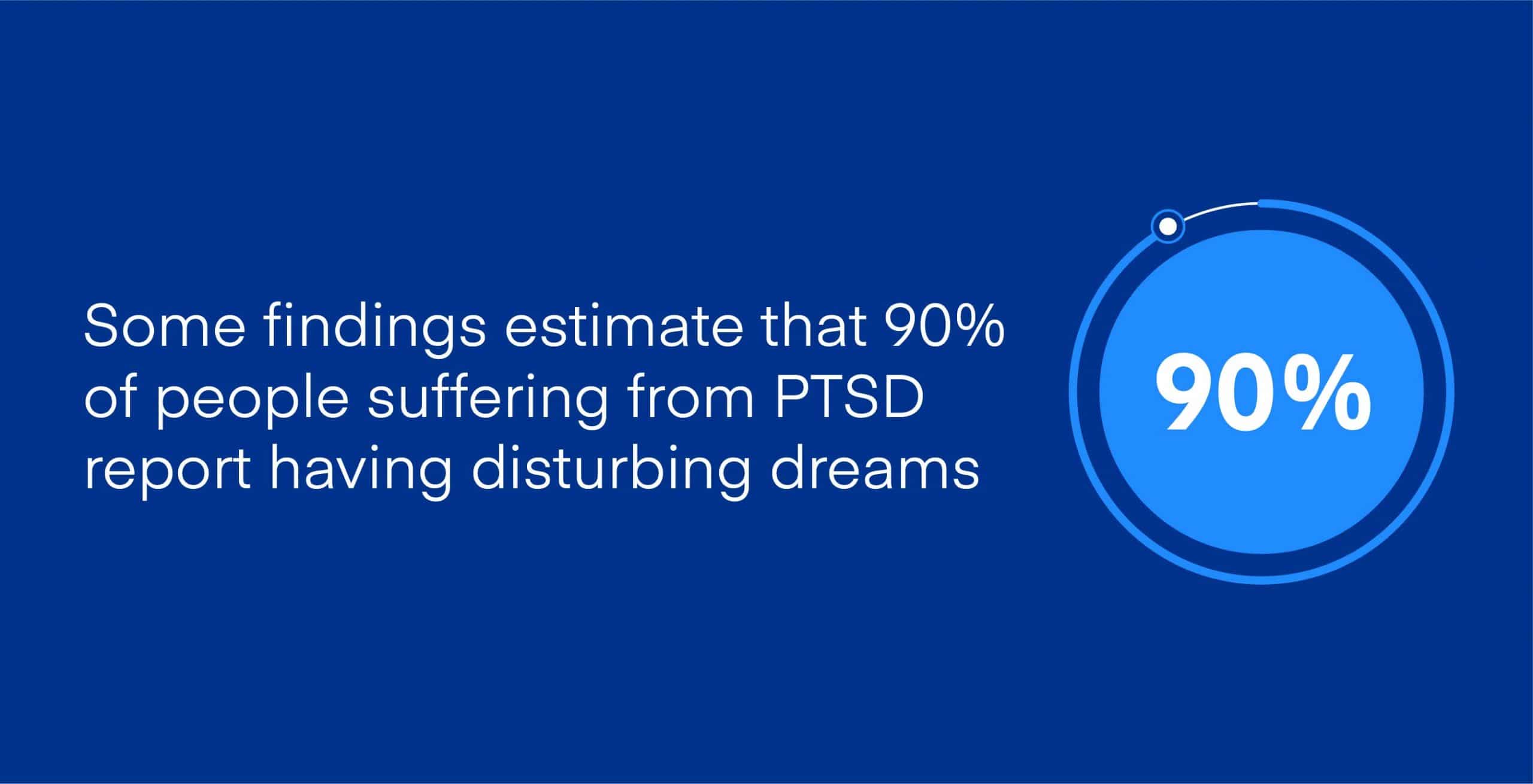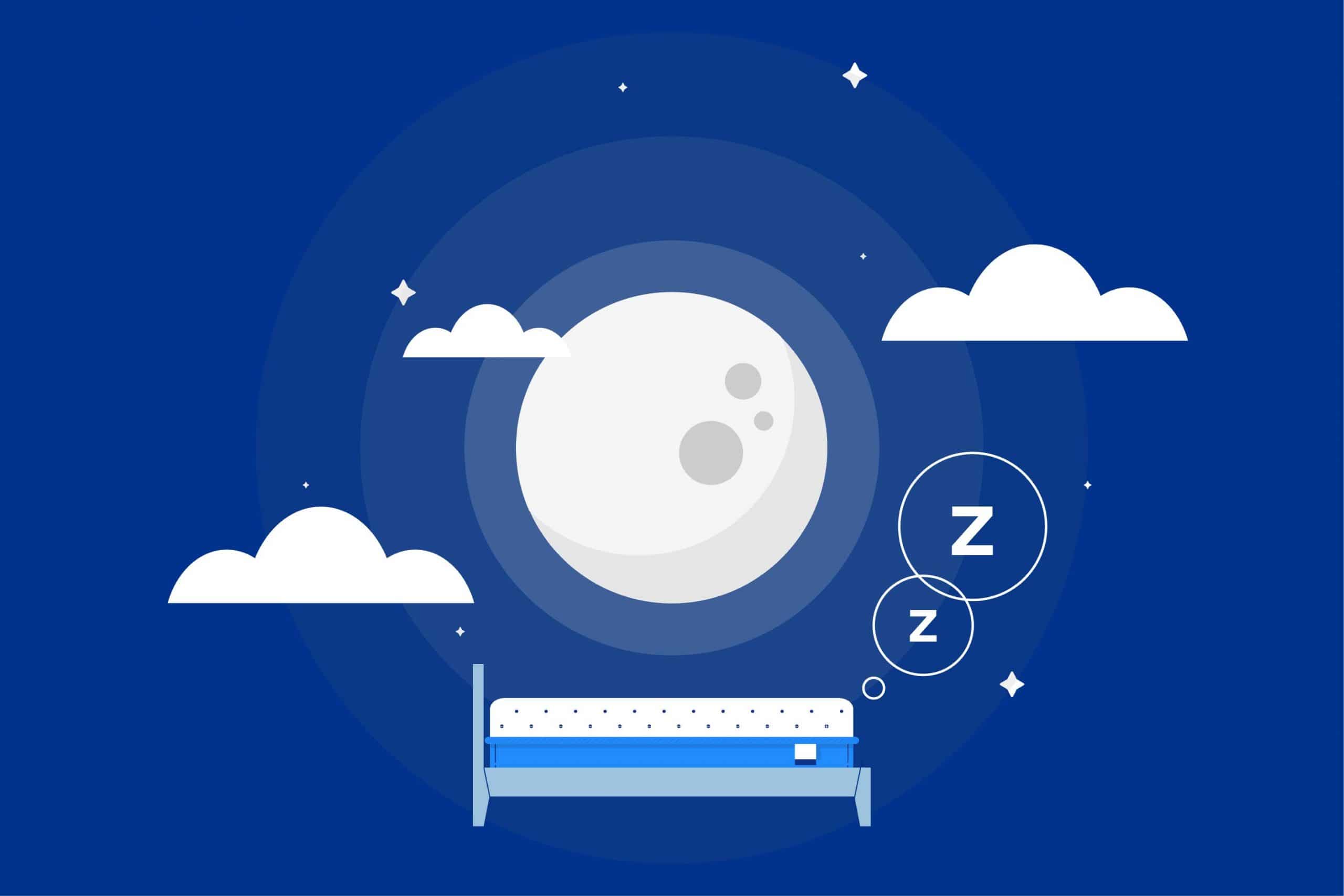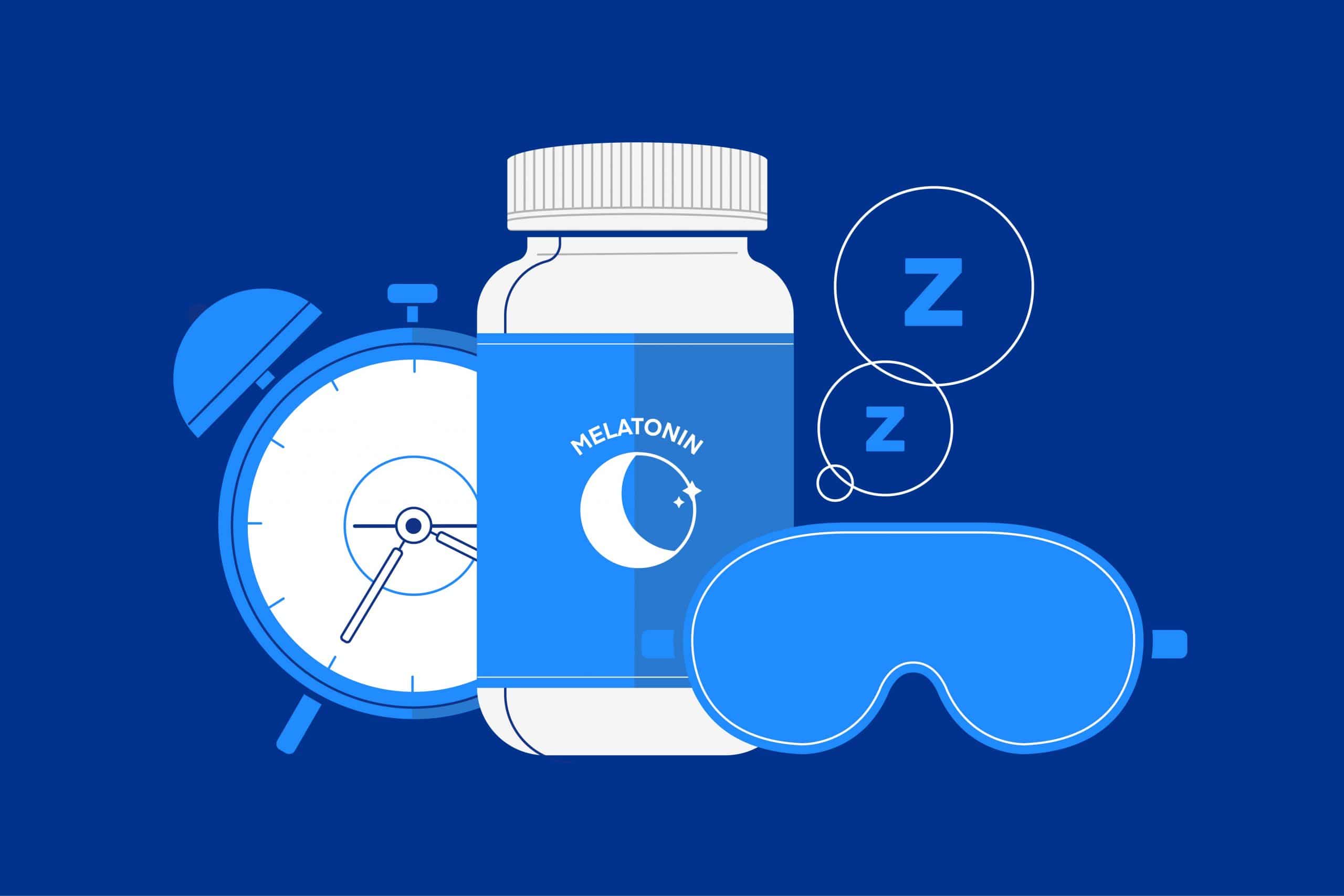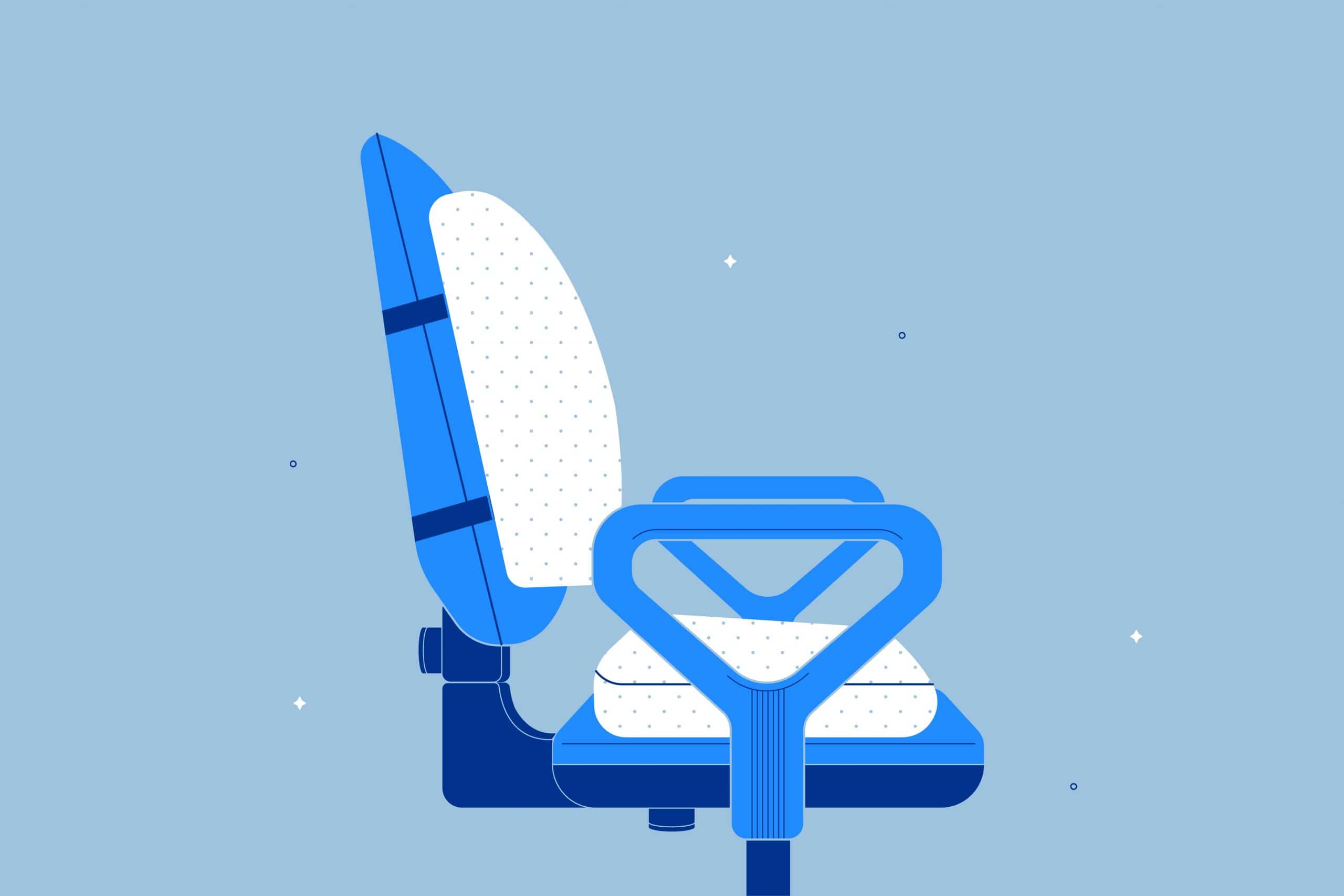You’re well past the point in your life where you’re scared of the dark. So why are you still plagued by frightening nightmares—or just plain bizarre dreams?
It’s true that nightmares and disturbing dreams prove most common in young kids. But they plague plenty of grown-ups, too: Up to 29% of us Verified Source National Library of Medicine (NIH) World’s largest medical library, making biomedical data and information more accessible. View source report having nightmares once a week, according to findings in the Journal of Clinical Sleep Medicine.
Experts know that dreams happen during REM sleep, the period of sleep when your brain is highly active. But they still can’t say for sure why we dream. Or just as important, what influences whether our dreams are chill and happy (riding a horse on the beach—woohoo!) or strange and scary (running from a threatening figure through the woods—oh no!).
But when it comes to the content of those unpleasant dreams, there are plenty of theories.
5 Surprising Factors That Can Cause Weird Dreams
1. You ate a huge, spicy meal for dinner.
Certain foods can impact how easily (or not) you drift off to dreamland. But foods that cause a fitful night’s sleep don’t just leave you tossing and turning. They might make for a crazy night of dreams, too.
Anecdotally, plenty of people report having weirdly vivid dreams after dining on something spicy or heavy. Some experts suspect that this could be because fiery foods raise your body temperature, which can cause you to have worse sleep. If you’re slightly more conscious, you might be more likely to remember your dreams more clearly, Stanford University sleep expert Emmanuel Mignot told the Wall Street Journal.

Other experts chalk the effect up to meal size. The more you eat, the harder your body has to work to digest all of that food—a process that can make it harder to achieve restful sleep, University of Chicago psychiatrist Lisa Medalie told NBC News.
2. You’re taking sleep supplements.
Popping a melatonin supplement might help you fall asleep more easily. But it can also cause you to have super vivid dreams or nightmares.
In fact, one small study, published in Sleep and Hypnosis, found that college students (especially women) who took 6 mg melatonin before bed were more likely to rate their dreams as bizarre compared to those who took a placebo pill.
Experts aren’t entirely sure why, but it could be that melatonin leads to more intense REM cycles, which could kick your dreams into high gear. Instead, natural sleep aids are recommended over supplements like melatonin.
3. You’re going off your meds.
Specifically, antidepressants. If you and your doctor decide that you should stop taking them, lower your dose, or switch to another prescription, there’s a good chance that your dreams will be affected. Especially if you nix the medications quickly instead of slowly tapering off.
This tends to happen because antidepressants work by altering levels of neurotransmitters—or chemical messengers—in your brain. Stopping meds can affect how those neurotransmitters behave, which can result in strange or disturbing dreams, say from Harvard Health experts. Verified Source Harvard Health Blog run by Harvard Medical School offering in-depth guides to better health and articles on medical breakthroughs. View source
Thankfully, the weirdness should stop once your body adjusts.
4. You binged on TV before bed.

Sure, catching up on your favorite shows might seem like a great way to unwind before turning in. But once you fall asleep (which might take a while, thanks to the blue light emitted by your laptop or tablet), your dreams could be pretty strange.
Studies on children find that watching media before bed significantly ups the risk of nightmares. Some experts say that could be because little kids have trouble telling the difference between what’s real and what’s fake, so the stuff on TV is more likely to scare them.
But adults might not be immune to what they see on the screen at night, either. In a British survey of 2,000 adults, over 60% reported being more likely to have bad dreams after watching a scary or gruesome show.
5. You’re super stressed out.
There’s no shortage of research documenting the nightmare-inducing effects of posttraumatic stress disorder, and some findings estimate that 90% of people suffering from PTSD report having disturbing dreams.

But even higher than normal levels of everyday stress might be enough to trigger nightmares in some people. Generally, research shows Verified Source National Library of Medicine (NIH) World’s largest medical library, making biomedical data and information more accessible. View source that anxiety and mood problems are linked to higher rates of nightmares.
In these cases, taking steps to better manage your stress might be all that you need to keep nightmares at bay. But if you’re dealing with chronic nightmares, or your nightmares are impacting your ability to get a restful night’s sleep, talk with your doctor.
Dreams Aren’t the Only Sleep-Disturbing Culprit
As we covered above, plenty of factors can contribute to weird and uncomfortable dreams, ranging from stress to diet.
However, there are even more things to consider when trying to get a better, deeper 8-hours of sleep each night.
Most things you’ve probably heard of, such as limiting the amount of blue light before bedtime to avoiding spicy foods and sugary or caffeinated drinks.
However, the quality of your mattress matters as well. It isn’t as common knowledge, but the best mattress for you could depend on your sleep style. For example, the best mattress for side sleepers tends to be a softer bed, as the extra cushion helps contour to side sleepers’ hips and shoulders.
About the author
Geoff McKinnen is a writer focusing mainly on the healthcare industry and has written articles on everything from foods to help you lose weight to the connection between Alzheimer’s and sleep. Geoff’s passionate about helping readers improve their well-being to lead happier lives. Outside of work, Geoff enjoys cycling and hiking and believes that by leading a healthy lifestyle, he can help others do the same.
View all posts





